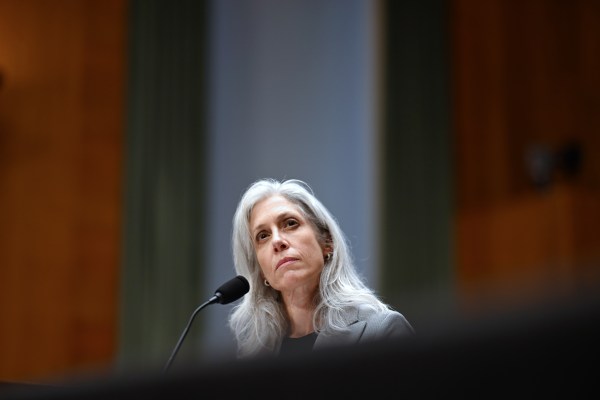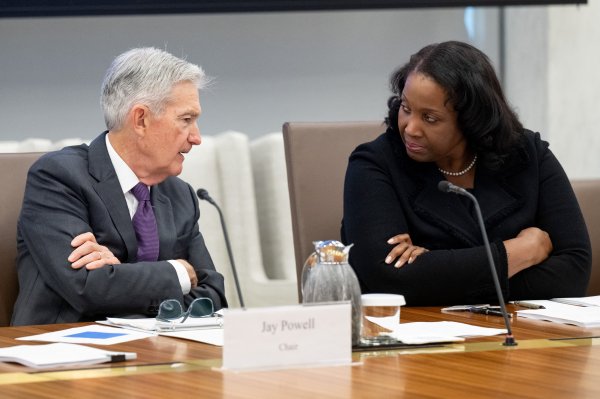The sting of the loss was apparent at the civic center in St. Cloud, Minnesota, back in May 2012. A 31-year-old combat veteran, Princeton University graduate, and first-time candidate named Pete Hegseth had come to the state Republican convention with the hope of winning over enough delegates to earn the party’s endorsement for the U.S. Senate. He had TV-ready good looks, a picture-perfect family, youthful vigor, and an impressive backstory.
But his supporters were no match for the superfans of presidential candidate Ron Paul. They had flooded the state convention and, unfortunately for Hegseth, also threw their support decidedly to a state representative and economics teacher named Kurt Bills, who won a whopping 64 percent of the delegates. The convention vote was nonbinding, yet still was a critical boost for Bills. Hegseth—who had spent hours walking through the convention gladhanding and backslapping—watched the vote announcement from the back of the room before beating a hasty retreat out of the civic center. Within days Hegseth dropped out of the race for Senate. (Bills, meanwhile, would win the nomination and lose handily to Democratic Sen. Amy Klobuchar.)
As a cub reporter covering what my editors and I thought could be the start of a long political career, I wondered that afternoon in St. Cloud if I would ever see Hegseth again. Of course, this ambitious young man went on to a successful media career, first as an on-air advocate for a veterans group, then as a host on Fox News for eight years before Donald Trump nominated him as secretary of defense. It was a long and winding road, but Hegseth has (for now at least) leapfrogged back into politics after being denied all those years ago.
He’s not alone. Hegseth is only one member of the second Trump administration to have been plucked from the pantheon of electoral duds and given a second lease on political life. From the Cabinet all the way to high-profile White House aides, there are failed candidates for major office who might have otherwise toiled for years in obscurity or, even worse, local politics if not for Trump’s magnanimity. Contrary to the president’s boasted affection for winners, it’s loyalty to Trump, sometimes even in the face of defeat, that remains the most valuable characteristic for a Republican looking to get ahead these days. Even the losers.
Among these lucky losers from the 2022 midterm cycle are Karoline Leavitt, the White House press secretary who won the Republican nomination for a U.S. House seat in New Hampshire only to be trounced by the Democratic incumbent in the general election; Bo Hines, who narrowly lost his race for a House seat in North Carolina and is now heading up a brand new White House office creating policy on cryptocurrency; and TV doctor Mehmet Oz, who eked out a primary win in the Pennsylvania Senate race in 2022 only to lose in the general election to John Fetterman and is now the head of the Centers for Medicare and Medicaid Services.
What unites many of these in the 2022 crowd is how closely they hewed to the pro-Trump line on the question of whether the 2020 presidential election was stolen. Their alignment with Trump on this may not only have cost some of them their races but seems to have been partially to blame for the underwhelming performance of Republicans overall in that midterm year. Candidates like Herschel Walker (now Trump’s nominee for ambassador to the Bahamas!) were boosted in the primaries by their allegiance to Trump, only to go down in defeat in the general election.
And all this losing was presaged by the defeat of Republican Sens. Kelly Loeffler and David Perdue in January 2021 in dual Georgia runoff elections. Both Loeffler and Perdue hugged Trump tightly at the height of his conspiracy theorizing about the 2020 election. But both lost, delivering Senate control to the Democrats just as Joe Biden was about to enter the White House. But they’ve both received their reward, with Loeffler as the Cabinet-level Small Business Administrator and Perdue as Trump’s nominee for ambassador to China.
The list goes on, from failed gubernatorial and Senate candidate Kari Lake (now heading up the U.S. Agency for Global Media) to Deputy FBI Director Dan Bongino (a three-time candidate for Congress in both Maryland and Florida) to Sean Parnell, who lost a Pennsylvania House race in 2020, withdrew from the 2022 Senate race, and is now the top spokesman at the Pentagon. In one case, the time between the last electoral defeat and appointment to the Trump administration has been long: Peter Navarro, the president’s top trade adviser, unsuccessfully ran for office five times, including for mayor of San Diego, San Diego City Council and county board, and the House of Representatives (in 1996, as a Democrat). He made a final bid for city council in a 2001 special election, getting a paltry 8 percent of the vote.
But my personal favorite may be Education Secretary Linda McMahon. The former chief executive of World Wrestling Entertainment was the Republican nominee for two consecutive open-seat Senate races in Connecticut, in 2010 and 2012. She lost both times in the general election and seemed better suited for a role as a GOP donor.
But her longtime friendship with Trump—he had appeared at Wrestlemania in 2007 in a staged feud with her husband and WWE impresario Vince McMahon—kept the dream alive for her. She donated to a super PAC to support Trump’s candidacy in 2016 and was rewarded with an appointment to head the Small Business Administration in his first term. During the interregnum, McMahon became more deeply ensconced in Trump’s world, chairing another super PAC and eventually co-chairing his presidential transition following the 2024 election before being tapped to head up the Education Department.
And as far as paths to power go, McMahon may have ended up better off losing those Senate races. Hobnobbing with other donors and having direct access to the most powerful Republican in the country sounds a lot easier than years of endless committee hearings and late-night votes on Capitol Hill. And at the end of the day, McMahon was appointed to the same Cabinet as a winning Senate candidate from 2010, Marco Rubio.
The good news for anyone in the Trump administration with aspirations to serve afterward is that it can be a launching pad. Just ask Arkansas Gov. Sarah Huckabee Sanders, who was Trump’s first-term press secretary. Or Rep. Max Miller of Ohio, a first-term White House aide for Trump. Or Rep. Ryan Zinke of Montana, who was Trump’s first Interior secretary. Or Rep. Brian Jack of Georgia, the first Trump White House’s political director.
So the pathway for aspiring MAGA politicians is clear: in order to get the Trump administration imprimatur to win a future race for office, try losing one first.







Please note that we at The Dispatch hold ourselves, our work, and our commenters to a higher standard than other places on the internet. We welcome comments that foster genuine debate or discussion—including comments critical of us or our work—but responses that include ad hominem attacks on fellow Dispatch members or are intended to stoke fear and anger may be moderated.
With your membership, you only have the ability to comment on The Morning Dispatch articles. Consider upgrading to join the conversation everywhere.